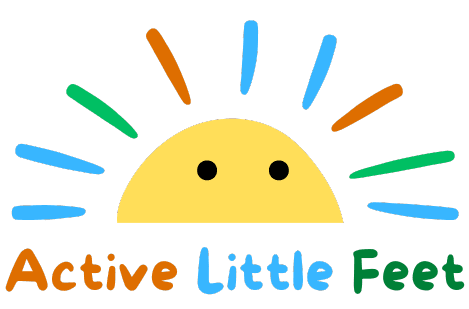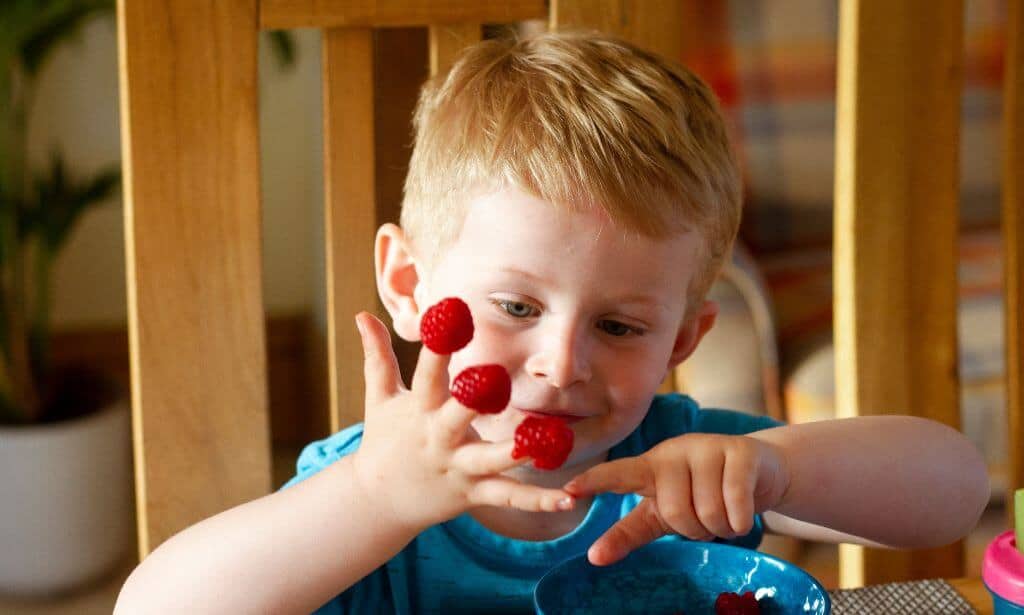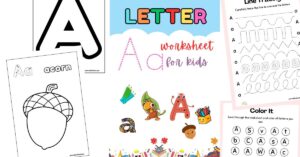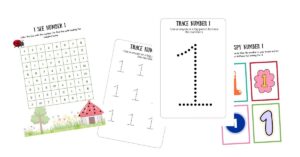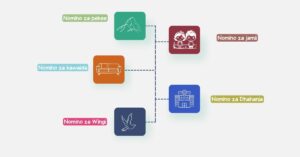Among the milestones 5-year olds should hit before they join elementary school is counting. They have already learnt to recognize numbers up to ten in preschool, and now they are ready to count even higher and represent numbers through concrete materials. But how high should a 5-year-old count?
5-year olds can count up to 30 and be able to recognize and write down numbers up to 20. They can also count to 100 using tens like 10, 20, 30,100. Moreover, kids at this age group can understand the concept of more than and less than, so they know which is bigger between 9 and 4.
That said, children develop mathematical skills at different rates, and some can count higher or lower than this at age 5. Let’s explore this more.
Mathematical Skills for a 5 Year Old
We’ve established that 5-year olds can count to 30 or higher, and recognize or write down up to numbers 20. But what else can they do with numbers?
- They can do simple math concepts using their fingers or everyday objects. Kids at this age know they have 5 fingers on each hand, so they can use them to do basic addition and count. And if you give a five-year-old 2 dolls and then add another 3, they can tell you they have a total of 5 dolls.
- They can count upwards from outside of one. A five-year-old does not need to count from one to get it right. They can start anywhere, even 8, and continue correctly to 30. What may be a challenge is skip counting small numbers like 2, 3, and 5.
- Most young children can count backwards from 10 to 1 easily and sometimes from 20 to 1. This however is only possible if they have been practicing.
- They can name numbers below 20 when you point at them randomly.
NB: A note on rote counting
Rote counting is simply saying a sequence of numbers in the correct order from memory, mostly starting from one, and it is the simplest way of counting. Kids learn this from a young age from nursery rhymes or reciting numbers, but they cannot recognize or write down the said numbers. All five-year olds should have a good mastery of rote counting up to the number 30 or 50.
The skill will come in handy when the child needs to count objects in everyday life. For example, they can count marbles in a straight line because they have the sequence of numbers in memory.
Practice is the best way to develop rote counting. With time, they can also master rote counting backwards, at least from 10 to 1 and also recognize these numbers when they see them.
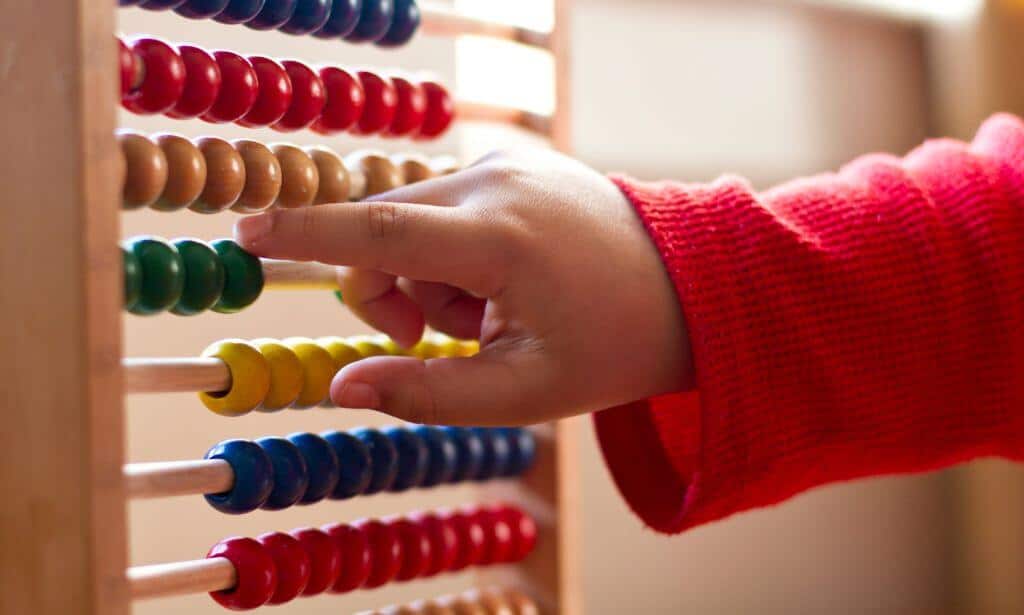
Can a 5-Year-Old Count to 100?
Experience shows that kids can master counting to 100 anywhere between three and a half years to six years. In most cases, the average child will learn to rote-count to 100 in the second half of elementary school. This is not something they should know after the end of kindergarten. In fact, teachers consider it a great milestone to reach when kids are still under six years.
That said, there have been cases worldwide where kids could count to 100 from age 3 or 4. In retrospection however, those same kids could also speak different languages like Greek and were considered geniuses. It was also clear that they put tons of time into practicing counting to 100 specifically.
The average age parents record their kids counting to 100 is six years old, right after or at the very end of the kindergarten class. If your child can count to 50, they are within the expected mathematical milestone.
Is It a Requirement for Kids to Count to 100 to Graduate Kindergarten?
Luckily, a child does not have to count to 100 to graduate from kindergarten. It is usually more of a self-imposed rule by teachers and parents to make kids master higher levels of counting before they join grade one.
While a few preschool children will have mastered counting one by one up to 100, most at this stage can only count in tens. After all, children learn at different rates even when they are in the same class. The idea is to assess whether a child has mastered rote counting, number sense and has a good working memory of numbers, language and other aspects. If the child has an issue with numbers, it will not be hard to notice.
Fun Activities to Teach Counting to a 5 Year Old
Learning to count high and recognize higher numbers is an essential step in arithmetic. As your kindergartner learns this skill and others in school, you, as the parent, can also help them improve and master the numbers. After all, parents are our children’s first teachers.
Here are 6 fun activities we recommend to help 5 and 6-year olds improve counting and basic math skills.
1. Colorful Abacus
A math abacus is the perfect educational toy because it will not make your child feel like a baby. Purchase one with large, colorful beads and hopefully one with a lot of beads.
Push all the beads to the left side and show the child how to slide one bead at a time to the right while counting. At first, you will need to count with them and then allow independence. When they master counting to a certain number alone, teach the next ten numbers until they get to 100.
2. Bouncing Balls
Almost all 5-year olds love playing football and bouncing their balls around the house. Use this opportunity to teach counting. Bounce the ball and count each bounce up to 20 and then hand them the ball.
Make it a competition and try not to win so they can count as high as they want, while getting a sense of achievement. Big bouncing balls are better for this game because they rarely fail to bounce, unlike the small ones.
3. Building Blocks/Legos
I love using this method with blocks to build castles and count. Deposit a block-filled bin before them and start building a vertical castle and counting each block. Let the child decide how many blocks they want on the castle or challenge them to see how many blocks can go before the tower collapses.
To take the game farther, let them dismantle the castle one block at a time while counting. Besides teaching math concepts, this activity also helps them practice their physical skills such as hand-eye coordination as well as gross and fine motor skills.

4. Magnetic Numbers
Does your child know how to rote count but cannot identify two-digit numbers? This game is perfect for them. Spread the magnetic numbers on the floor and tell the kids to arrange them correctly while naming each number loudly. Start with only numbers 1-10 and progress slowly as high as you can.
Once they have mastered the number names in sequence, ask them to pick random numbers to see if they can identify them outside the sequence. You can start with something less challenging, like 11 to gauge the mastery level.
5. Laundry Learning
At 50 to 60 months of age, kids love helping with chores and other simple tasks, especially loading laundry. Use this as a counting lesson by making them count each article of clothing and sorting them according to colors. Tell the child to tell you how many white pieces you have, or they can count each of them as they hand you to load in the wash. This helps improve their counting skills and practice memory and color identification.
6. Counting Things on a Walk
If you don’t take regular walks outside with your child, start. Besides the workout and fresh air, walking outside is a great way to teach counting in a fun way. You can play a game of counting all the trees you pass by, the houses on the street, or even the cars.
Count different real world things every time you go out to keep the game fun, and try to count as high as you can. You can also decide to count white cars while the child counts all the blue cars and see who gets a higher number.
Why Does My Child Struggle with Counting?
While counting may seem straightforward to many kids, it is not to others. Counting involves critical skills, also known as number sense, that some children are not born with. Children’s ability to understand the actual concept of numbers, how they work and how they follow each other without thinking so much about it is not easy for everyone.
To count, kids also need to have an excellent working memory so they can remember symbols and sequences. Again, this is a challenge for many kids, and a closer evaluation may be necessary.
So, what causes such a struggle with counting or mathematics in general?
Most people will conclude that the child has dyscalculia– a learning disorder that makes it hard for someone to understand, learn and use numbers. It’s a lot like dyslexia but with numbers only.
Kids with dyscalculia will have trouble reading and using numbers, remembering strings of numbers or identifying them. So while they may learn how to rote-count to 10 through songs or repetition, it will be difficult to learn other numbers and reach other math milestones because this requires a deeper understanding.
That said, dyscalculia is only one reason a child may struggle to count at age 5. Other problems like ADHD, dyslexia and visual/auditory processing disorders can also play a role. You may not have noticed the issue in pre-school because all kids at that age struggle, but it starts to become apparent in second grade and above.
Luckily, counting and learning difficulties will not be the only symptoms.
You will also realize they struggle with the concept of time, simple word problems sometimes, and a general sense of numbers. Note the things you notice about your child and discuss them with a specialist for more specialized help. While there is no ‘cure’ for dyscalculia or ADHD, there are many ways to work around it and learn like other children.
So, how high can a 5 year old count?
A typical 5-year-old or kidergarten can count relatively high to 50 at least and identify many numbers randomly. How high a child can count will depend on the amount of practice they get and how their brain works. As a parent, you have the responsibility to create a strong foundation for the child using some of these fun activities and others like card games, number word tokens from a young age.
That said, counting should not be a measure of intelligence because every kid learns at a different pace. But if you notice a child is struggling to count or basic math, getting an evaluation by a specialist will not hurt.
